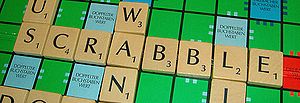
A weakness common to novice interviewers is their inability to take charge of an interview. Interviews frequently look like a runaway train with the interviewer gamely hanging on to the proverbial little red caboose.
Taking charge doesn’t mean forcing or dictating the direction of the interview. It’s more like riding a horse. Anyone familiar with riding knows that it requires confidence and a gentle hold on the reins. The same approach applies to interviewing.
Here are four ways to keep control of your interview:
1. From the outset be clear what you want from the interview.
If you’re clear before you start on the topic that you want to explore and its parameters then it makes it easier to stay on track.
For example, if you know you want to capture a client’s childhood stories about summer holidays, then start your interview by saying something like, “Tom, today I’d like you to think back to your childhood and your summer holidays. What’s a particularly strong memory of the games you played?”
2. Use short, focused questions.
The more precise your questions the more specific the answers from your interviewees. For example, a good question would be “What was your Mother’s special gift or talent?” A poor question would be “Tell me about your family.”
Questions that aren’t specific make interviewees anxious because they don’t know what you’re searching for. If you continue to follow-up with vague, unfocused questions, their trust will erode and so will the interview.
3. Gently interrupt.
It’s difficult, I know. It seems somehow impolite. But you’d be surprised how many people really don’t mind being interrupted in an interview. In fact they appreciate that you’re paying attention and bringing them back on topic.
To interrupt politely wait for your interviewee to pause before stepping in. For example, “Margaret, this is a fascinating story about your aunt. Later we’ll be taking more time to talk about your extended family. But I’d like to come back to the earlier question I asked about your mother?”
It’s important to acknowledge the interviewees’ remarks, assure them that the topic will be covered, and then gently nudge them back on track.
4. Go where there’s passion.
Sometimes it’s best to throw your plans out the window. An apparent innocent question on your part might trigger a strong emotional response in your interviewees that has no apparent connection to your question. If this happens, take the time to explore the story behind the emotion.
Clearly your interviewees wants to talk about this now. If you put them off by forcing them back on topic, you can lose a really important story.
Conclusion
If you’re just starting out as a professional personal historian, I hope these suggestions will be helpful. Use them as guidelines not as hard and fast rules. Interviewing is more an art than a science. With experience comes an intuitive sense of how to guide an interview and get the best possible story.
If you enjoyed this post, get free updates by email.
Photo by Mazeau














